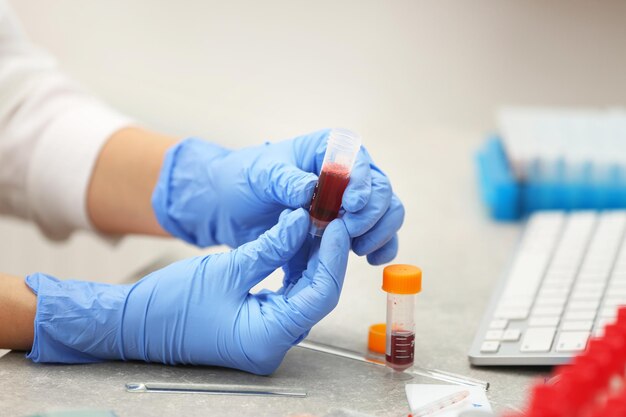How to Become a Hematologist: Essential Degrees and Certifications
Embarking on a career as a hematologist involves a rigorous yet fulfilling educational journey focused on diagnosing and treating blood disorders. Aspiring hematologists must initially obtain a bachelor’s degree in a science-related field, which provides a solid foundation in biology and chemistry. The journey continues with admission to medical school, where students earn their Doctor of Medicine (MD) degree. Medical school not only imparts critical knowledge about various aspects of human health but also hones vital skills through clinical rotations. Upon graduating, aspiring hematologists must complete an internal medicine residency, which typically lasts three years. This stage is pivotal for developing hands-on experience in a clinical setting.
The final step in this specialized path is a fellowship in hematology or hematology-oncology, where focused training over two to three years equips candidates with advanced knowledge and expertise in blood-related diseases. Board certification is a significant milestone, with the American Board of Internal Medicine offering certification exams in hematology. Continuous education is also vital to stay abreast of developments and advances in the field, ensuring that patients receive the best care possible.
🔍 Key Educational Steps and Certifications for Aspiring Hematologists:
- 🎓 Bachelor's Degree: Science-related field (e.g., Biology, Chemistry)
- 🏥 Medical School: Doctor of Medicine (MD) degree
- 📚 Residency Program: Internal medicine residency (3 years)
- 🩸 Fellowship: Hematology or hematology-oncology (2–3 years)
- 📜 Board Certification: American Board of Internal Medicine in Hematology
- 📈 Continuous Education: Ongoing professional development and learning

Related Topics
- Becoming A Neurosurgeon
- Becoming A Pediatrician
- Becoming Physician Assistant
- Becoming A Surgeon
- Becoming A Doctor
- Becoming Brain Surgeon
- Becoming Cardiothoracic Surgeon
- Becoming Family Physician
- Forensic Pathologist Duration
- Becoming A Gyno
- Heart Surgeon Timeline
- Orthopedic Surgeon Training
- Pediatric Dentist Duration
- Pediatric Doctor Timeline
- Pediatric Surgeon Training